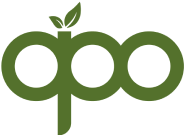The Journey To Organic And Beyond
By: The OPO Team
The first organic classification arose in the 1970s during a time when environmental awareness and consumer interest in more natural agricultural systems were growing, but there were no standards or regulations in place beyond loose philosophical agreement. For years, organic produce has been viewed as the ultimate choice when it comes to food free of harmful additives, pesticides, and chemicals. When we see a U.S. Department of Agriculture (USDA) certified organic label, there’s a sense of comfort that comes with it. We inherently feel like we’re making the right choice not only for our bodies, but for the environment.
What truly counts as organic? Is organic produce safer and more nutritious? Is it worth the extra cost? These questions are often asked, and rightfully so. OnePointOne on a mission to unleash the power of plants on human health, and with that, we had to explore the answers to these questions and more to identify how we could grow the most nourishing, nutrient-dense, pristine and flavorful produce possible.
According to the Environmental Protection Agency (EPA), "organically grown" food is grown and processed using no synthetic fertilizers or pesticides – emphasis on synthetic. Organic food may still use pesticides, but the pesticides must be derived from natural sources (such as biological pesticides). Efforts at creating a universal definition and regulating what is and isn’t organic falls under a number of regulatory agencies, each of which have varying perspectives and approaches to determining what is allowed to be called organic. And, there are still certain synthetic substances that are permitted so long as their use does not contribute to the contamination of crops, soil, or water. Organic agricultural production still uses pesticides and herbicides that meet the USDA’s certification standards.
In an attempt to create a universal rule, the USDA formed the National Organic Standards Board (NOSB), which is designed to advise the National Organic Program on which substances should be allowed or prohibited in organic farming. This council is made up of public volunteers appointed by the Secretary of Agriculture; board members include organic growers, handlers, retailers, environmentalists, scientists, USDA-accredited certifying agents and consumer advocates.
At OnePointOne, we are in a class of our own that is beyond organic. This statement isn’t intended to be haughty or grandiose – we are able to hold ourselves to a different standard because our produce is grown in a completely controlled environment free of pollutants, devoid of pests, and with minimal human interaction, which is a common source of contamination. Each plant is grown in the most optimal controlled conditions that make it possible to avoid the use of any synthetic or organic pesticides.
Organic certification is a laudable development that was born of a desire to promote human health and protect our environment. Above all, we encourage eating a diet rich in fruits and vegetables – whether conventional or organic – to boost immunity, overall wellness and nourish the body from within. We take produce one step further by reducing pesticide use to zero with OnePointOne’s advanced aeroponic vertical farming technology, but at the heart of our mission is providing nutrient-rich (and incredibly pure) produce for all. We will continue to push ourselves to elevate and expand our offerings with a focus on taste, purity and sustainability.
3 MIN READ

